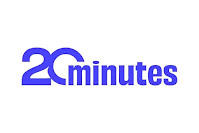By : Phonegate Team • 28 Mar 2025
On March 15, 2025, the newspaper 20 Minutes published an article on glioblastomas in 15-39 year-olds, these particularly aggressive brain tumors. While we welcome the interest shown in this crucial public health issue, we feel that some of the information contained in the article is inaccurate or imprecise, and could mislead the public. Despite our exchanges with the editorial team and the experts quoted in the article, no corrections have been made to date. Once again, we return to the facts to set the record straight.
20 Minutes article: questionable figures and wording
In its March 15 article, 20 Minutes cites figures for the incidence of glioblastoma in France that contradict official data published by Santé Publique France (SPF). The article states that glioblastomas represent “20% of the 5900 central nervous system cancers diagnosed each year”, i.e. around 1180 cases per year. However, according to SPF‘s 2019 and 2021 reports, the number of glioblastomas was estimated at 3,481 cases in 2018, representing around 56% of central nervous system cancers.
This significant difference raises a number of questions: are the INCa (Institut National du Cancer) data quoted by 20 Minutes up to date? If so, why are these figures not consistent with those published by SPF? These questions were addressed by Dr. Marc Arazi for Phonegate Alert directly to the experts, Dr. Emmanuel Dessandes and Dr. Claire Morgand, quoted in the article, for clarification.
A move to set the record straight
Faced with the numerous inconsistencies highlighted in the article, we also spoke to journalist Anne-Laetitia Béraud of 20 Minutes, who told us that the information had been validated by the two experts quoted in the article. However, despite forwarding the data that we felt warranted rectification to the publication’s editor Ronan Dubois, we received no satisfactory written response to our requests for clarification.
We therefore wrote directly to the experts concerned on Friday March 21, outlining our questions and requesting their support in correcting the article. To date, we have received no response.
Here is an extract from our letter to them:
“We would like to draw your attention to certain inaccuracies noted in the article published in 20 Minutes on March 15, which we feel distort the scope of your research and require significant clarification with the press that relayed them. […] While the article mentions 1,180 cases per year (20% of 5,900 CNS cancers), the SPF report estimated 3,481 cases in 2018, or 56% of CNS cancers.”
20 Minutes: why is this correction essential?
- Clear, reliable public information: Glioblastoma is a major public health issue. Disseminating erroneous or inaccurate data can undermine understanding of the real risk and the necessary awareness of this disease, which has been steadily increasing over the past 30 years.
- Impact on artificial intelligence tools: In a context where AI makes extensive use of data published by the media to feed their information bases, it is crucial that this data is accurate. An error in an article can be amplified and picked up massively by these tools.
- Respect for scientific work: Official reports produced by Santé Publique France and other institutions must be correctly cited and interpreted to avoid any misrepresentation of results.

No comments:
Post a Comment
Note: Only a member of this blog may post a comment.